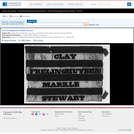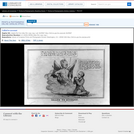
Once more the House of Representatives investigation of Treasury practices under the Van Buren administration in connection with the Swartwout embezzlement scandal. (See above nos. 1839-6 through -9.) The print must have appeared in January or February, after the House of Representatives voted to form its select investigative committee by ballot. Speaker of the House James K. Polk, perceived as a friend of the administration, was prevented by a Whig majority in the House from appointing the committee himself, as was customary. Here a kneeling, bespectacled Polk is berated by Satan (who could represent Van Buren). Satan: "What does this mean? How came you to let that Committee be chosen by ballot? Don't you know we're undone? Was it for this I made you Chancellor of the Exchequer? Did not you engage to do all our work? and manage the House for my interest? and here's that cursed [Whig Congressman Henry A.] Wise with his Committee breaking in to our Head Quarters! I'll cashier you!!" Polk: "Dread Sir! be not too wratful with your servant; I did my very best. You know I have not the influence I once had; I'm sure I turned & twisted & did all a man could. Pray try me but once more; See if I don't carry your Sub-Treasury Bill for you, & if that passes you know we are all made!" "Called to Account" is most probably by the same artist as "Symptoms of a Duel" (no. 1839-10).|Drawn by HD?|Entd . . . 1839 by H.R. Robinson.|Printed & publd. by H.R. Robinson, 52 Cortlandt & 11-1/2 Wall st. N. Y.|Title appears as it is written on the item.|Weitenkampf, p. 57.|Forms part of: American cartoon print filing series (Library of Congress)|Published in: American political prints, 1766-1876 / Bernard F. Reilly. Boston : G.K. Hall, 1991, entry 1839-11.
- Subject:
- History
- U.S. History
- Material Type:
- Diagram/Illustration
- Primary Source
- Provider:
- Library of Congress
- Provider Set:
- Library of Congress - Cartoons 1766-1876
- Date Added:
- 06/13/2013
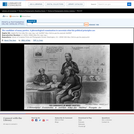
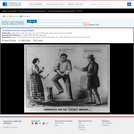
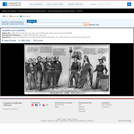
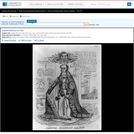
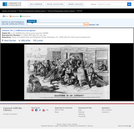
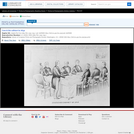
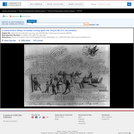
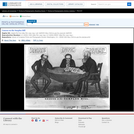
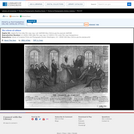
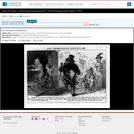
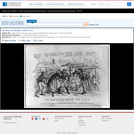
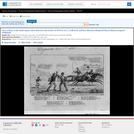
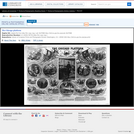
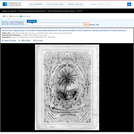
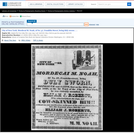
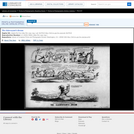
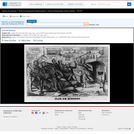
![[Clay-Frelinghuysen Campaign Badge]](https://img.oercommons.org/160x134/oercommons/media/upload/materials/screenshots/materials-course-76039.png)
